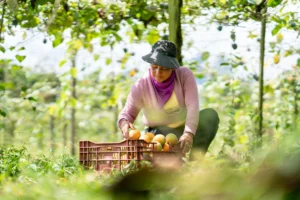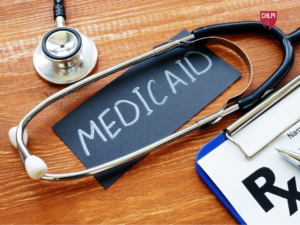Originally written by Madeleine Beller and published by FoodTank.
The Global Food Donation Policy Atlas recently issued recommendations that may help Nigeria reach their 2035 goal to end poverty and reduce hunger. The recommendations respond to Nigeria’s existing policies and legal barriers to food donation and outlines solutions that align with the 2030 United Nations Sustainable Development Goals.
To help countries around the world prevent food waste, the Harvard Law School Food Law and Policy Clinic (FLPC) and the Global Food Banking Network (GFN) launched the Global Food Donation Policy Atlas in 2019. Nigeria joins as the 18th country in the Atlas to include country specific legal guidance and policy recommendations.
According to the Atlas, 44 percent of Nigeria’s population experiences moderate or severe food insecurity. At the same time, 40 percent of food is lost after harvest, highlighting the urgency of closing the gap between production and consumption. “We know that most food that ends up in landfills is safe and edible and the risk of illness is relatively low. We also know that food producers are willing to redirect surplus food to people experiencing hunger if their risk of liability is removed,” Emily Broad Leib, Director of FLPC tells Food Tank.
Nigeria does not have a national law to promote food donation or to address the country’s nearly 38 million tons of food loss and waste per year. To help surplus food reach those in need and better understand the greatest barriers to food donation in Nigeria, GFN and FLPC collaborated with local organizations including the Postharvest Loss Alliance for Nutrition and the Lagos Food Bank Initiative.
The Atlas offers a variety of policy recommendations that Nigeria could pursue to promote food donation. One of the highlighted recommendations is to elaborate on and clarify food safety requirements relevant to food donation. Michael Sunbola, President of the Lagos Food Bank Initiative, tells Food Tank, “This policy has the possibility of ensuring that good and edible food items can be donated and utilized while reducing the amount of food waste that comes out of food industries like supermarkets and local markets.”
The Atlas also recommends establishing clear and comprehensive liability protections for food donors and food recovery organizations that meet food safety standards and participate in the donation and distribution of surplus food. “One common concern about food donation is the fear that someone will get sick after eating donated food,” Halley Aldeen, Research Director at GFN, tells Food Tank, “Companies should be able to donate food in good faith without worrying about criminal liability in cases of illness.”
Broad Leib thinks that these two recommendations could make a massive difference in multiple sectors in Nigeria. “Given the difficult financial situation many countries, including Nigeria, are in post pandemic,” says Broad Leib, “we are highlighting two recommendations because they are both low or no cost opportunities for change.” Not only are they low or no cost, Broad Leib reports that “progress on these two recommendations alone could significantly boost the amount of food producers that donate their surplus of safe food, decrease food waste, and limit the greenhouse gasses it generates in landfills at the same time.”
The Atlas also suggests interventions including incentivizing programs and educational campaigns. Currently, tax incentives in Nigeria do not apply to food donations. This means that any costs associated with preparing, storing, and transporting food for donation are not recuperated. The Atlas recommends that tax incentives be available for in-kind donations and that food donation organizations be included on the list of organizations to which tax-deductible donations can be made.
Education and media, which shape the public’s ideas about food consumption, are important as well, Sunbola says. “The vast majority of Nigerians are of the school of thought that all types of date labels, even best before labels, indicate that the product is expired and no longer suitable for consumption,” he tells Food Tank.
Sunbola adds that food safety education and food label awareness should go hand in hand with recommendations surrounding labeling regulations. “To change this mindset,” he continues, “effectively sensitizing Nigerians with forms of media campaigns, visual aids, and hosting open conversations on this subject, can begin to help change this narrative.”
As the recommendations outline, food donation may guide Nigeria on its path to meet its 2035 goals to reduce poverty and end hunger. “Food loss and waste have significant negative consequences for economies and people,” Broad Leib tells Food Tank. “Food donation has the triple bottom line benefit of supporting people, the planet, and the economy.”


Food Law & Policy, Commentary
Policy to Reduce Methane Emissions and Feed More People
April 3, 2025